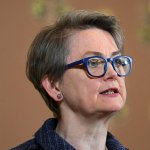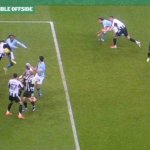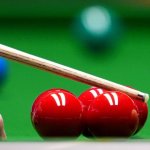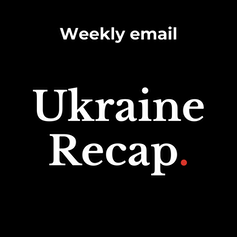This time last week, the world was anxiously awaiting the annual Victory Day celebrations in Russia for a clue as to what Vladimir Putin might be planning for his war in Ukraine. Victory Day, held every year on May 9, is a commemoration of the victory over Nazism in Europe, a victory that the Soviet Union had played such a massive part in – with such a massive cost. It continues to have huge significance for most people in Russia. There can’t be many families whose parents or grandparents escaped the horrors of what is still known as the “Great Patriotic War”.
This year, Victory Day was billed as having a special significance, due to the war in Ukraine. Kremlin watchers predicted that either Putin might declare “mission accomplished” in his “special military operation” or – more ominously – a mass mobilisation to allow the Russian military to double down on its assault on Ukraine. In the event, neither was forthcoming. The Russian president instead restated his spin on the invasion, that it is a crusade to rid Ukraine of the “Nazi gang” that he says runs the country – a message that has special resonance, given the nature of the commemoration.
Stefan Wolff, an expert in international security at Birmingham University specialising in the post-Soviet space, believes that Ukraine’s stout defence has forced Russia into assuming a more defensive mode) and that we are now more likely to see a war of attrition that could last some time. He says increased western military aid and economic sanctions will continue to take their toll and a return to negotiations might be feasible, but this time Ukraine – and its charismatic leader Volodymyr Zelensky – will be playing with an altogether stronger hand.
Read more:
Ukraine: Victory Day celebrations can’t mask how badly things are going for Vladimir Putin
Victory Day is also traditionally a chance for Russia to display its military might: thousands of troops marching in formation with the latest in tanks, warplanes and other high-tech hardware. But – having watched the parade – military specialist Frank Ledgwidge writes) that it was a strangely lacklustre affair, with no air display (due, it was said, to the weather – on a clear day) and an array of next-generation materiel over which there remain significant question marks.
Read more:
Ukraine war: Russia’s new military hardware looked good on parade, but are less impressive in the field
This is our weekly recap of expert analysis of the Ukraine conflict.
<br>The Conversation, a not-for-profit news group, works with a wide range of academics across its global network to produce evidence-based analysis. Get these recaps in your inbox every Thursday. Subscribe here).
International response
Meanwhile, Ukraine continues to receive huge amounts of western military aid, not least from the US, which recently passed a “lend-lease” act which will make it easier and quicker to get weapons to where they are needed. Christoph Bluth, an expert in international relations and military history at Bradford University, sees parallels) with a similar aid package provided by the US to Britain during the second world war when Britain – like Ukraine now – was facing its “darkest hour”.
Read more:
America’s massive ‘lend-lease’ aid plan for Ukraine recalls similar help in Britain’s ‘darkest hour’
The conflict in Ukraine has ushered in a new era of increased western defence budgets all round. Or, as defence secretary Liz Truss would have it: “Geopolitics is back.” And western governments are realising that decades of under-investment in defence have left their countries vulnerable. Defence expert Kenton White, from the University of Reading, writes that when even countries like Sweden and Finland pump bilions into their defence budgets, it’s a sign that the post-cold war “peace dividend” is well and truly spent).
Read more:
Ukraine: boosting European defence spending now won’t make up for decades of underinvestment
Finland and Sweden, moreover, are edging ever closer to joining Nato. The two countries have traditionally maintained a neutral stance, albeit putting in place arrangements to guarantee their security. But, as we know, Ukraine had a similar arrangement in the shape of the Budapest memorandum, which didn’t deter Russia from attacking – and this will have been noted elsewhere. Stefan Wolff sees a new European order) emerging from the Ukraine war – but it’s not the security landscape that Putin had envisaged when he sent the troops across in Ukraine.
Read more:
Finland and Sweden’s desire to join Nato shows Putin has permanently redrawn the map of Europe
Crime and punishment
It has recently been reported that Ukraine has charged at least one Russian soldier with war crimes and is preparing charges against several others for crimes such as rape, murder and deliberately targeting civilians. Zelensky announced last month that Ukraine had put in place legislation to enable Ukrainian courts to try enemy combatants for war crimes and these will be the first. But, Solon Solomon, an expert in international law from Brunel University, believes it will be more difficult) to put the actual architects of the war, the men directing operations from the Kremlin, on trial.
Read more:
Ukraine: ordinary Russian soldiers face war crimes charges but the big fish are likely to avoid punishment – here’s why
Soft power
When it comes to the war of words, Ukrainian president Volodymyr Zelensky has so far run rings around his Kremlin counterpart. Russia, traditionally so strong when it comes to the information war, has been totally outclassed by Zelensky both at home and abroad. It’s the Ukranian president who has been cheered to the rafters in sundry parliaments around the world, while the increasingly isolated Putin has looked more and more bereft – even, as already noted, at such a set-piece of propaganda as the Victory Parade this week. Paul Baines, a political communication expert from the University of Leicester, believes that as well as success on the battlefield, wars are often won or lost through information advantage) – and at the moment it’s advantage Ukraine.
Read more:
Ukrainian propaganda: how Zelensky is winning the information war against Russia
Meanwhile it’ll be “null points” for Russia at the Eurovision Song Contest this weekend – the country has been banned from fielding an entry along with its ally Belarus. Ukraine, on the other hand is likely to garner a significant sympathy vote from judges and viewers alike when it comes to tallying the scores for this annual jamboree of pop excess. University of Hull historian Catherine Baker has been tracking Eurovision voting trends) and has listened to this year’s offering from Ukraine’s folk-rap band Kalush Orchestra. She believes if the band does win – and it’ll be the third time this century a Ukrainian act has carried the day – it’ll be as much about the quality of the song as any sympathy vote. But we’ll leave that judgement up to individual viewers.
Read more:
Eurovision: If Ukraine’s Kalush Orchestra triumph it won’t be a sympathy vote, says an expert
Save the date
The Conversation is thrilled to be able to invite you to the first event in a new series set up to explore social science perspectives on current topics of interest. Social Science Perspectives on the Russian Invasion of Ukraine – featuring Sir Lawrence Freedman “”) is on Wednesday May 18 at 18:00 at SAGE Publishing, 1 Oliver’s Yard, 55 City Road, London, EC1Y 1SP.
Hosted in collaboration with the Campaign for Social Science and SAGE Publishing, we’ll be holding these in-person salon-style events each quarter, providing an informal environment for like-minded people to build connections and discuss the pressing issues of the day. Join us at SAGE’s London office for free food, drinks and stimulating conversation.
Ukraine Recap is available as a weekly email newsletter. Click here to get our recaps directly in your inbox.)
![]()











